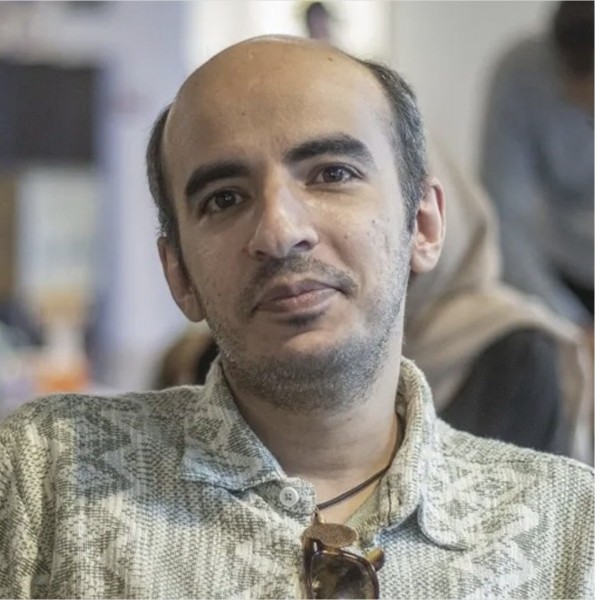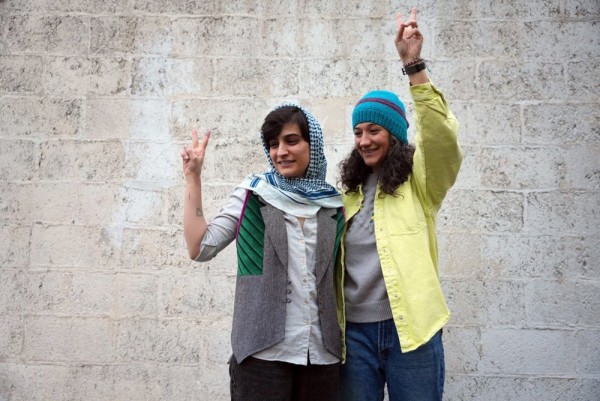Mr. Ganji, you spent six years in an Iranian prison. Since your release four years ago, you have been living in exile. What have you been doing since you were freed?
I am working as an activist and write a lot, every day in fact. Even in prison, I never stopped writing. I criticize the Iranian regime where I can, and fight for human rights. I often speak at universities, and have spoken before the European parliament. At the moment I am very occupied with my new book – a 400-page, strong critique of Ayatollah Khomeini.
What does it mean to be a political prisoner in Iran?
The situation in Iranian prisons is grim. Especially at the beginning of imprisonment a lot of pressure is exerted. The prisoners are forced into confessions. [One example is that they attempt] through pressure and torture [to force a confession of infidelity in marriage from people. Under conditions like that many cease resisting.]
Were you also tortured in prison?
It depends what you understand as torture. According to international standards, I was tortured. In Iran they think that as long as they are not hitting you with whips or cables, it’s all right. Kicks and light blows to the face are not seen as torture in Iran. One common practice for example is to stick the head of a prisoner into a water-filled toilet bowl. They didn’t do that to me, but to many others.
You were named by the International Press Institute one of 60 World Press Freedom Heroes. Why do you think you were awarded this prize?
Maybe the award has something to do with my time in prison. I am sure, though, that many in Iran have experienced a much worse time in prison than I did; so I see this prize is for all journalists in Iranian prisons. The others just didn’t have the possibility to be recognized by the international community. But that doesn’t reduce the value of their acts.
What’s it like to work as a journalist in Iran?
It is very dangerous. You start working for a newspaper; then after three months, it is shut down and you end up in prison. That’s why journalism cannot be seen as a real job in Iran. Many of my journalist friends have been unable to find a job in the industry years in Iran over the last 10 or 12; so they have left the country. Unfortunately it is very difficult to find suitable employment in another country.
According to an Amnesty International report more than 5,000 opposition supporters have been arrested since June 2009, many of whom remain in prison.
How strong is the opposition movement in Iran today?
That’s a difficult question. The problem is that no one can predict the future, whether or not things will come to a revolution, nor when this regime is going to fall. We can say, though, that the opposition is dominated by the Iranian regime. A lot of pressure is exerted over the people through the police and the intelligence services. Such pressure, though, does not mean that the regime will remain strong in the long term. But if there were not this pressure, the opposition would be much stronger. There are many crises in Iran today: an economic crisis, a crisis of legitimacy, an ideological crisis, and a religious crisis. The government cannot change these.
The opposition movement that came to prominence in Iran after June 2009 has also been called the “Twitter Revolution.” How significant was the new media for the opposition in Iran?
This protest movement used all forms of media: They filmed with cameras in their mobile phones and made countless videos. They communicated using Facebook, Twitter and Email. But that’s not real life; that’s a virtual life.
The most important thing remains what is really happening in Iran. There are real problems. They need to be overcome.
Nonetheless, new media have played a very important role in this process, but we shouldn’t make them bigger than they are. People are important. We cannot replace people with new media. The murdered, the prisoners, the protesting masses, they are reality. The media simply show what is happening there.
Through new media, it was possible in 2009 to film the murder of the girl “Neda” with a mobile phone camera and to send the video around the world in a matter of minutes. This media revolution has certainly made the world a little bit smaller.
This interview was conducted through a translator.


